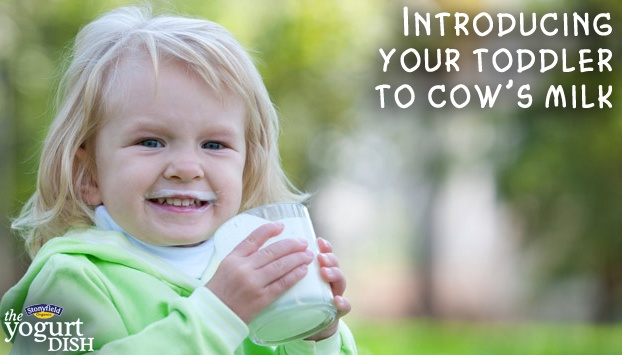Introducing Your Toddler to Cow’s Milk
April 26, 2013
webmaster@push10.com

Once your little one has mastered a variety of solid foods and can hold a cup like a pro, it might be time to start thinking about introducing cow’s milk to his diet. But proceed with caution: Infants can’t digest cow’s milk as easily as breast milk or formula, and some varieties of cow’s milk might not contain the fat and nutrients growing toddlers need.
Most babies can start drinking cow’s milk around one year of age. Even then, consult your pediatrician before making major changes to your child’s diet.
Timing the Switch
Exclusively feed your baby formula or breast milk until at least 12 months old, as recommended by the American Academy of Pediatrics, to prevent digestive upset and promote optimal nutrition. Even after your little one enjoys her first birthday cake, she may not be ready to give up the breast or bottle in favor of cow’s milk. “It’s not as though breastfeeding needs to stop when baby turns one year old. Breast milk is recommended for at least one year and thereafter until mutually desired.” says Gina Ciagne, certified lactation counselor and senior director of professional relations for Lansinoh Laboratories. Signs of readiness include the desire to eat a wide variety of age-appropriate solid foods and the willingness and ability to drink out of a cup.
Selecting the Right Milk
Most toddlers need extra fat and vitamins from milk, meaning they should drink whole milk fortified with vitamin D, according to Ciagne. Every child has unique nutritional needs, however, and your pediatrician should be able to recommend a type of milk suitable for your child when you’re ready to transition. The American Academy of Pediatrics does not recommend giving your one-year-old more than a quart of high-calorie milk per day. Around your child’s second birthday, you may be advised to switch to low-fat milk to keep obesity at bay. (Although some experts say there is no reason to make the switch.) Organic milk is a good choice for your child, since organically raised animals aren’t treated with antibiotics for non-therapeutic purposes.
Easing the Transition
Many young toddlers aren’t satisfied with the taste of cow’s milk at first, since breast milk and formula tend to be much sweeter. If you’re getting the “yuck” face when you try to transition, start with a cup of breast milk or formula that has a little cow’s milk added, then gradually alter the ratio over several days until your little one is entirely on cow’s milk. Some one-year-olds won’t make the switch easily, meaning parents of stubborn tots might have to get creative with meals. “There are alternatives to cow’s milk,” says Ciagne. “For instance, you can offer whole-fat yogurt or calcium-rich vegetables like broccoli or spinach and other greens.” Most children will be receptive to cow’s milk by the time they turn three.
Keeping Your Child Safe
Some parents find out at an early age that cow’s milk is a no-go for their child, due to intolerance or allergy. Always start with small quantities of cow’s milk and gradually increase your child’s serving as you transition. Contact your pediatrician if you notice signs of trouble such as abdominal pain, gas, irritability and rash. Ciagne recommends withholding milk at the onset of any unusual symptoms and noting whether they resolve once milk is removed from the diet.
Author Bio
Marissa Meyer has been writing professionally since 2004, with work published on websites such as Decoded Science and MomSquawk. She has also worked in the travel, beauty, home design and childcare fields. Meyer received dual Bachelor of Arts degrees in communication and political science from University of Wisconsin – Green Bay.
Disclaimer: The views and opinions expressed in this post are solely those of the author and do not necessarily reflect the opinions and views of Stonyfield. The content provided, and in any linked materials, are not intended and should not be construed as medical advice. If you have any questions about health or nutrition, we always think it’s best to consult with your doctor or healthcare practitioner.
